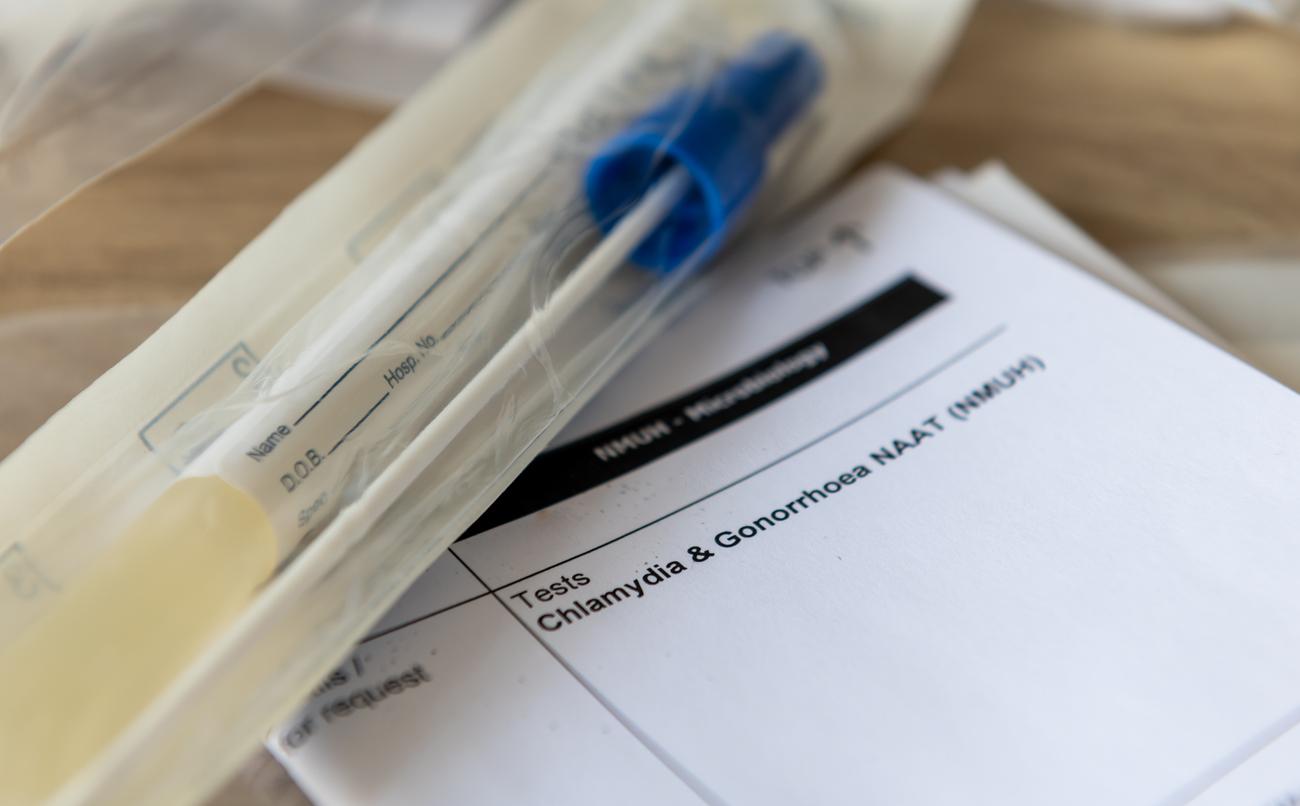The Centers for Disease Control and Prevention (CDC) today released guidelines for a preventive antibiotic regimen that public health officials hope could help stem the rise of sexually transmitted infections (STIs).
The guidelines outline the CDC's recommendations for the use of doxycycline post-exposure prophylaxis (doxy PEP) in selected populations to prevent syphilis, gonorrhea, and chlamydia. Based on the high efficacy observed in randomized clinical trials and a review of the populations that would benefit the most, the agency recommends that providers should discuss the use of doxy PEP with all gay, bisexual, and other men who have sex with men (MSM) and transgender women (TGW) with a history of at least one bacterial STI in the previous 12 months.
"Following shared decision-making with their provider, CDC recommends that providers offer persons in this group a prescription for doxy PEP to be self-administered within 72 hours after having oral, vaginal, or anal sex," the guidelines state. "The recommended dose of doxy PEP is 200 mg [milligrams] and should not exceed a maximum dose of 200 mg every 24 hours."
The CDC says doxy PEP should be offered in the context of a "comprehensive sexual health approach" that includes risk reduction counseling, STI screening and treatment, recommended vaccination and linkage to HIV pre-exposure prophylaxis (PrEP) and care.
High efficacy found in randomized trials
"Doxy PEP represents the first new STI prevention tool in decades, at a time when innovation in the nation's fight against STIs is desperately needed," Jonathan Mermin, MD, MPH, director of CDC's National Center for HIV, Viral Hepatitis, STD, and TB Prevention, said in a statement emailed to reporters.
The guidelines were developed by a multidisciplinary work group of CDC staff members with expertise on STIs, HIV, and public health who reviewed literature on the efficacy and safety of doxycycline for preventing bacterial STIs. The finalized document also reflects input from experts who reviewed the draft guidelines and provided comments.
Among the evidence reviewed was the results of the Doxy-PEP trial, which was conducted among a cohort of MSM and TGW in San Francisco and Seattle who were living with HIV or on HIV PrEP. The trial found that 200 mg of doxycycline within 72 hours of condomless sex reduced the incidence of chlamydia, syphilis, and gonorrhea by 88%, 87%, and 55%, respectively.
Two other randomized trials showed similar efficacy. A fourth trial, conducted among cisgender women, found no significant reduction in bacterial STIs.
Doxy PEP represents the first new STI prevention tool in decades, at a time when innovation in the nation's fight against STIs is desperately needed.
Data from reviewed studies also indicated that recommending doxy PEP for MSM and TGW with a history of bacterial STIs within the past 12 months—subpopulations with a higher risk of STIs than other groups—would provide the most benefit while minimizing antibiotic use. One study suggested the strategy could avert 42% of STIs.
Innovation is needed in the fight against bacterial STIs, because no vaccines exist for these infections and little else seems to be working. CDC data show that STIs in the United States rose by 42% from 2011 to 2021, with more than 2.5 million cases of chlamydia, gonorrhea, and syphilis reported in 2022. Aside from a brief drop during the COVID-19 pandemic, STI rates have shown no signs of decline.
Mermin told CIDRAP News in 2023 that while doxy PEP is not a silver bullet for reducing bacterial STIs, it could have a substantial impact on a problem that public health officials have struggled to control.
"This won't be the solution to the STI epidemic, but if delivered equitably, thoughtfully, and carefully, this will reduce the toll of STIs in the nation, including among people most impacted by these infections," Mermin said.
STI and sexual health clinics in Seattle, San Francisco, and several other cities have already been offering doxy PEP to the recommended populations. But experts say the CDC's stamp of approval will likely encourage more providers around the country to consider it.
"I think the guidelines are very important, since the CDC is the normative body for public health policy for the US government, and their publication should stimulate discussion among providers and the wider community," Fenway Institute Co-Chair and Medical Research Director Ken Mayer, MD, told CIDRAP News. "Their endorsement of doxy PEP will make many providers feel more comfortable in prescribing the medication for patients who could benefit."
Concerns about antibiotic resistance
The CDC says it believes this is the "right step for right now," but acknowledges important questions remain about doxy PEP. Chief among them is whether its expanded use will have a long-term impact on antibiotic resistance. Doxycycline is one of the recommended antibiotics for treating chlamydia infections and an alternative treatment for syphilis in nonpregnant patients with severe penicillin allergies. Although no longer recommended for gonorrhea, it remains effective against certain strains.
The concern is that chronic episodic use of doxycycline, a broad-spectrum tetracycline antibiotic, could select for multidrug resistance in Neisseria gonorrhea and resistance in other common bacterial pathogens, such as Staphylococcus aureus, that reside in the anatomical sites where STIs occur and other parts of the body. The efficacy of doxy PEP in other populations, and its impact on the microbiome, are other unknowns.
The CDC says that while the current data suggest overall benefit from the use of doxy PEP, it will adjust its recommendations as new data become available.
"Looking ahead, we will leverage existing data systems to monitor the uptake of doxy PEP and how this impacts bacterial STI rates, understand national doxycycline prescribing rates, and identify trends in antimicrobial resistance," the agency said.























